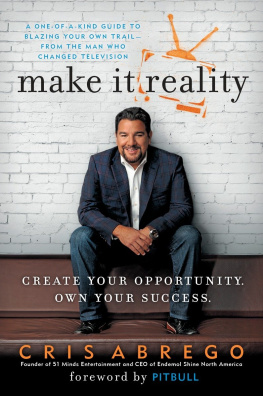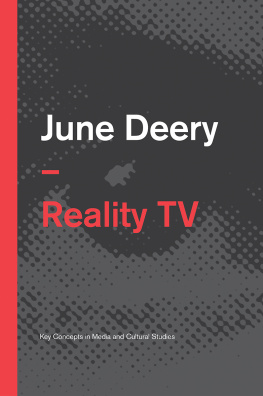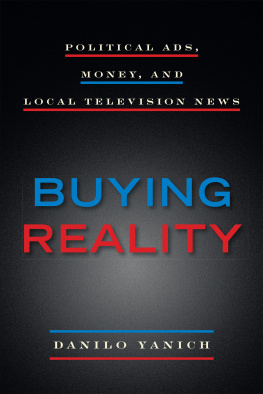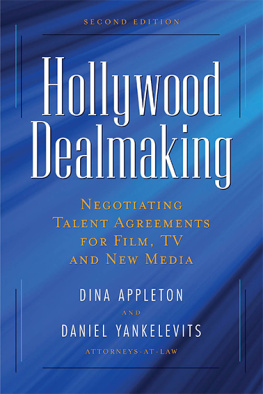Copyright 2016 by Paul Battista and Hayley Hughes
All rights reserved. Copyright under Berne Copyright Convention, Universal Copyright Convention, and Pan American Copyright Convention. No part of this book may be reproduced, stored in a retrieval system, or transmitted in any form, or by any means, electronic, mechanical, photocopying, recording or otherwise, without the express written consent of the publisher, except in the case of brief excerpts in critical reviews or articles. All inquiries should be addressed to Allworth Press, 307 West 36th Street, 11th Floor, New York, NY 10018.
Allworth Press books may be purchased in bulk at special discounts for sales promotion, corporate gifts, fund-raising, or educational purposes. Special editions can also be created to specifications. For details, contact the Special Sales Department, Allworth Press, 307 West 36th Street, 11th Floor, New York, NY 10018 or .
19 18 17 16 15 5 4 3 2 1
Published by Allworth Press, an imprint of Skyhorse Publishing, Inc.
307 West 36th Street, 11th Floor, New York, NY 10018.
Allworth Press is a registered trademark of Skyhorse Publishing, Inc., a Delaware corporation.
www.allworth.com
Cover and interior design by Mary Belibasakis.
Library of Congress Cataloging-in-Publication Data is available on file.
Print ISBN: 978-1-621-53-486-0
Ebook ISBN: 978-1-62153-496-9
Printed in the United States of America.
Contents
Acknowledgments
PAUL BATTISTA
I would like to acknowledge and thank my wife, Leah, for her continuous support and encouragement. I would also like to thank Tad Crawford at Allworth Press for his guidance and vision in shaping the book.
HAYLEY HUGHES
I would like to thank my mama and best friend, Karen, for loving me unconditionallyI love you to the moon and back. I would also like to thank Jimmy for loving me exactly how I am but always pushing me to be a better version of myselfIm forever yours, faithfully. Finally, to Paul, thank you for having the brilliant idea to write this book.
Introduction
S ince 2000, reality television has experienced the greatest growth of any television genre in terms of the number of shows developed and aired. It has been exciting to experience the development of a new segment of the television industry that has occurred primarily through a trial-and-error process, absorbing the aspects that work and discarding those that dont work. We wrote this book to provide essential agreements that are used in the development, production, and airing of reality television programs. We have included some of the language found in these contracts as a framework for our comments and guidance regarding the important terms to be aware of and to understand. In that regard, it is not the structure of the book to provide boilerplate contracts that can be printed and used in the development, production, and broadcast of reality shows. Our goals in writing the book include the following: (1) to prepare those who do not have experience in reality television regarding what they can expect regarding the basic agreements involved in reality television; (2) to provide our guidance and comments regarding the negotiation of terms found in these agreements; and (3) to hopefully start a dialogue among those who do have experience in reality television, since there are very few books currently available that explore the subject matter presented in this book. As mentioned above, reality television is in its beginning stages of development, and the contracts that are used to provide the foundation and structure of the participants relationships are developing with it. Therefore, we believe this dialogue is important for the development of the terms found in these agreements.
The contracts that have developed into the primary ones used in reality television have their roots in the contracts that have been used in the development, production, and broadcast of other television genres, for example, sitcoms, dramas, and game shows. However, much of the language specific to reality television is the result of the innovation and imagination of the participants in the process, including the attorneys engaged to draft the contracts. Our comments and guidance regarding the terms in this book are based on our years of experience counseling clients in the development, production, and broadcast of their reality television shows. However, it must be noted that the television industry changes quickly, the law is dynamic and is changing daily, and the legal information presented at the date of publication of this book will not be updated until a subsequent edition is published. Legal information presented in the book is generally based on federal law, California state law, and New York state law, and the facts specific to any situation in which the reader may find himself or herself will be unique and different from the facts presented in this book, thereby making any parallel conclusions to the readers specific circumstances inaccurate. In addition, the reader may be subject to laws different from the federal and state laws presented in this book.
THEREFORE, WE MUST POINT OUT THAT THE READER SHOULD NOT RELY ON THE LEGAL INFORMATION PRESENTED IN THIS BOOK TO ANSWER HIS OR HER SPECIFIC LEGAL QUESTIONS NOR RELY ON THE ACCURACY OF SUCH INFORMATION. RATHER, THE READER SHOULD ENGAGE THE SERVICES OF QUALIFIED, EXPERIENCED LEGAL COUNSEL.
PART I:
Background of Reality Television
Very Brief History of Reality Television
T he history of the current forms of reality television is not very deep; it can be traced back to the year 2000, when the show Survivor aired. The mainstream success of that show spurred networks to add reality television to its broadcast offerings. As of 2015, reality television programs are aired on over fifty different channels. However, reality television had been slowly developing for a number of years before Survivor brought the genre to the mainstream. The format of capturing real people in real circumstances dates back to the 1940s and 1950s. Perhaps two of the more successful shows during that time frame were Candid Camera in the 1940s and Queen for a Day in the 1950s. Both shows featured real people in circumstances in which they were themselves, revealing who they were either through their actions or through answers to questions, and thereby creating drama, suspense, or comedy from the results. Both shows generated record amounts of advertising dollars and were aired for many years. There also were successful reality-based shows on television in the 1960s and 1970s, for example: This Is Your Life, Mutual of Omahas Wild Kingdom, Seven Up!, An American Family, The Undersea World of Jacques Cousteau , and Family .
This is an appropriate place to address the definition of the genre of reality television as applied in this book. The agreements commented on in this book are applicable to the reality television genres other than talk shows (for example, The View ), traditional game shows (for example, The Price Is Right ), and news programs (for example, Face the Nation ). The agreements provided are a basic format used in reality based programs in sub-genres such as competition shows (for example, The Apprentice ), makeover/improvement shows (for example, The Biggest Loser and Restaurant: Impossible ), hidden camera shows (for example, Punkd ), and soap opera shows ( The Real World, The Osbournes, Keeping Up With The Kardashians, Little Couple, and The Real Housewives ). The agreements are basic and provide a framework for understanding what is encompassed in reality-based contracts, but each show has its own unique rules and issues that require an attorney to draft language that is specific to each show. The attorney often works closely with the producers of the show to understand and to incorporate the specific language required for each show.








